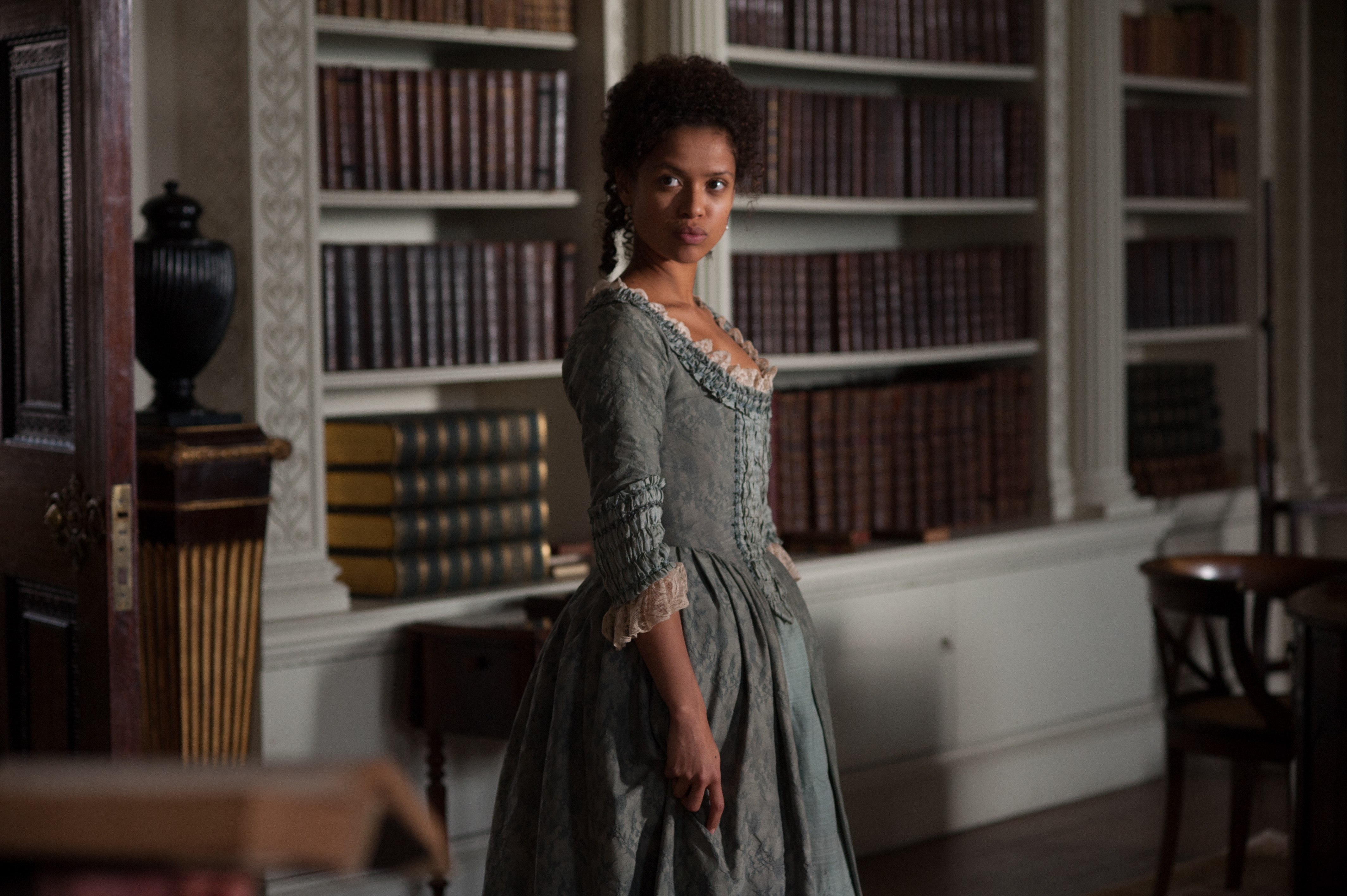Belle
Opens Fri., May 23 at Guild 45th, Meridian, and Lincoln Square. Rated PG. 105 minutes.
The rule or the exception—which story should filmmakers follow when addressing history’s great blights? Spielberg gave us the lucky few, and the little girl in the red coat, in Schindler’s List. More recently, 12 Years a Slave didn’t flinch from depicting the institution of slavery, but it was essentially a survivor’s tale with a happy ending. The English Belle, based on a true story, inspired by an 18th-century painting of two cousins—one black, one white—never lets you doubt its heroine’s felicitous fate. Dido (Gugu Mbatha-Raw) is born with two strikes against her: She’s the mulatto daughter of a kindly English naval captain who swiftly returns to sea, never to be seen again; and she’s female, raised by aristocratic cousins in the famous Kenwood House (today a museum), meaning she can’t work for a living and must marry into society—but what white gentleman would have her?
Writer Misan Sagay and director Amma Assante have thus fused two genres—the Austen-style marriage drama and the outsider’s quest for equality—and neatly placed them under one roof. The guardians for Dido and cousin Elizabeth (Sarah Gadon) are Lady and Lord Mansfield (Emily Watson and Tom Wilkinson); the latter is England’s highest jurist who in 1783 would decide the Zong case, in which seafaring slavers dumped their human cargo to claim the insurance money. In this proper Georgian household, refined Dido speaks Latin and French, plays piano, and enjoys all the same privileges as cousin Elizabeth—until guests arrive. Then, says Dido, she’s “too high in rank to eat with the servants and too low to eat with the family.”
Yes, there are suitors for both girls; and yes, there are rash proposals, teary confidences, concerned aunts, unexpected inheritances, and significant walks in the park. Yet Dido’s slavery-equality dilemma deepens the usual courtship complications. She and Elizabeth are on display like commodities; and the latter realizes, because she has no fortune, “We are but their property,” referring both to potential husbands and the surrogate father who’ll approve those marriages. Predictably, it’s the square-peg Dido who begins to rebel against the patriarchy, speaking her mind at breakfast, reading abolitionist pamphlets, and even smuggling Lord Mansfield’s privy papers to a handsome, liberal law student. Belle never surprises you, but it satisfyingly combines corsets and social conscience, love match and legal progress.
bmiller@seattleweekly.com








